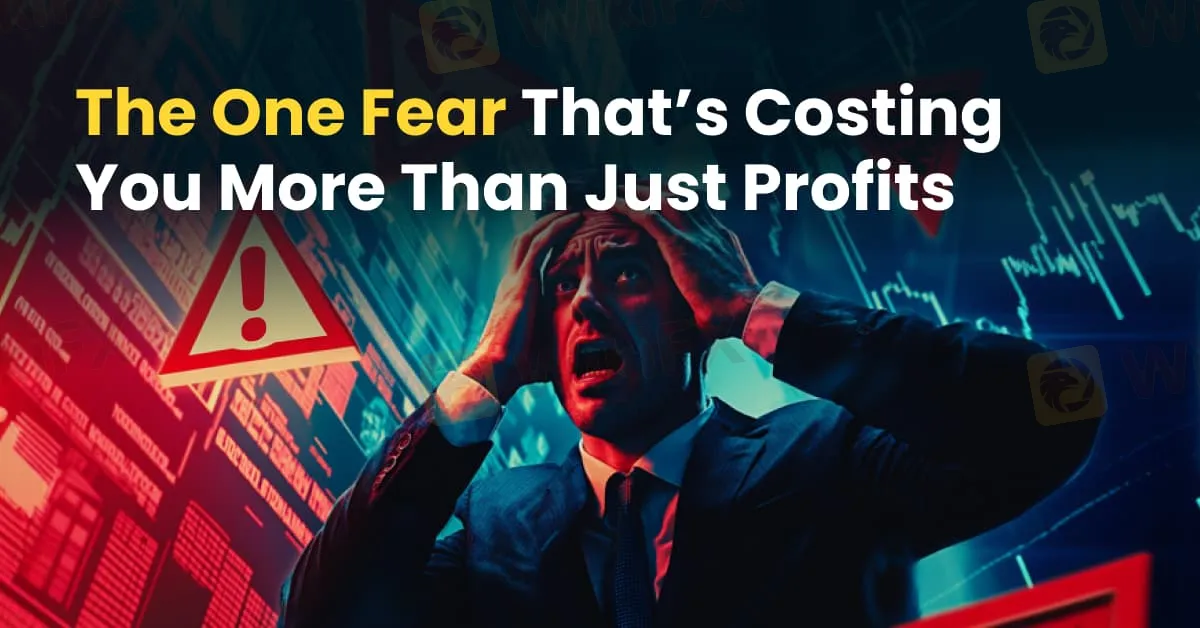简体中文
繁體中文
English
Pусский
日本語
ภาษาไทย
Tiếng Việt
Bahasa Indonesia
Español
हिन्दी
Filippiiniläinen
Français
Deutsch
Português
Türkçe
한국어
العربية
The One Fear That’s Costing You More Than Just Profits
Abstract:The fear of missing out (FOMO) is NOT what you think it is! Read the three lesser-discussed components that contribute greatly to FOMO trading!

In the fast-paced world of trading, where milliseconds can define profit or loss, fear is an ever-present force. Yet not all fear is obvious. Some wear subtle disguises, such as appearing as hesitation, overanalysis, or compulsive action. Among the most destructive of these is the fear of missing out (FOMO), fuelled by three lesser-discussed but deeply ingrained fears: the fear of losing, the fear of winning too little, and the fear of passing time without action.
Each of these emotions chips away at a traders discipline, nudging them into irrational decisions that ultimately erode long-term performance.

Loss aversion is a well-documented behavioural bias, but in trading, it often manifests in harmful ways. Many traders, even experienced ones, will hold on to losing positions far longer than they should, paralysed by the fear of being wrong or of accepting even a modest loss. Ironically, its this very fear that turns small, manageable losses into devastating ones.
This emotional bias often leads to premature exits from otherwise sound trades or aggressive ‘revenge trading’ to compensate. Neither path serves a long-term strategy.

A lesser-discussed but equally damaging mindset is the fear of not capitalising enough on a good trade. This drives traders to over-leverage or extend their position beyond sensible parameters, often resulting in profits being wiped out entirely.
This fear feeds the illusion that every trade must be maximised for its full potential, rather than executed in accordance with a disciplined strategy. It neglects the reality that trading success is not about grand slams, but its about consistent, repeatable outcomes.

Perhaps the most deceptive fear is that of inactivity. In todays hyper-connected markets, where price feeds and news alerts run 24/7, doing nothing can feel like falling behind. This fear creates a false urgency which eventually leads to overtrading, chasing price moves, or entering trades with no strategic basis.
The reality? Professional traders know that not trading is sometimes the most profitable move of all. Waiting for high-probability setups, rather than forcing trades out of boredom or anxiety, is what separates seasoned professionals from impulsive speculators.

All three of these fears—of losing, of winning too little, and of idle time—culminate in the ultimate trading trap: FOMO. It seduces traders into abandoning their systems, chasing trends, and ignoring risk management. In the long run, FOMO-fuelled decisions are almost always regretful ones.
To overcome these fears, traders must develop self-awareness and a structured process. Journaling trades, defining risk parameters in advance, and stepping away from the screen when necessary are essential habits. Trading is as much a psychological game as it is a technical one.
Mastering the market starts with mastering yourself. And that begins by confronting the fears that silently sabotage your performance every single day.

Disclaimer:
The views in this article only represent the author's personal views, and do not constitute investment advice on this platform. This platform does not guarantee the accuracy, completeness and timeliness of the information in the article, and will not be liable for any loss caused by the use of or reliance on the information in the article.
Read more

Never Heard of Dynasty Trade? Here's Why You Should Be Worried
Have you heard this name before? No , it’s time you do because staying unaware could cost you. This platform is currently active in the forex trading and has been linked to several suspicious activities. Even if you’ve never dealt with it directly, there’s a chance it could reach out to you through ads, calls, messages, or social media. That’s why it’s important to know the red flags in advance.

Catch the Latest Update on BotBro & Lavish Chaudhary
BotBro, an AI-based trading platform, became popular in India in 2024—but for negative reasons. Its founder, Lavish Chaudhary, who gained a huge following by promoting it heavily on social media. Since then, he has become well-known, but for many controversies. Let’s know the latest update about Botbro & Lavish Chaudhary.

Trading Other People’s Money | What Prop Firms Don’t Tell You
Proprietary (prop) trading firms have become increasingly popular. They give traders the chance to trade with larger amounts of money without risking their own savings. For many, this sounds like the perfect opportunity to grow faster and earn more. But while the benefits are appealing, there are also risks and hidden rules that traders must understand before joining a prop firm.

What WikiFX Found When It Looked Into Aron Markets
When it comes to online trading, the broker you choose can make or break your trading journey. A reputable and regulated broker offers a sense of security and accountability, while unregulated brokers often pose significant risks to traders. Aron Markets is one such broker that raises multiple concerns due to its lack of valid regulation and its registration in a high-risk offshore location.
WikiFX Broker
Latest News
Asia-Pacific stocks fall as investors weigh recent trade developments
Is Your Forex Strategy Failing? Here’s When to Change
FSMA Warns That Some Firms Operate as Pyramid Schemes
Apex Trader Funding is an Unregulated Firm | You Must Know the Risks
LVMH shares jump 2.5% after reporting better-than-feared earnings, Texas factory plans
Why Octa Is the Ideal Broker for MetaTrader 4 & 5 Users
Stop Level Forex: How Does it Help Traders Prevail When Losses Mount?
5 things to know before the Thursday open: Meme stock revival, Trump's Fed visit, Uber's gender feature
CNBC's Inside India newsletter: Leaving, but not letting go — India's wealthy move abroad, but stay invested
Moncler raises prices on tariffs, may postpone store openings if downturn worsens
Currency Calculator


